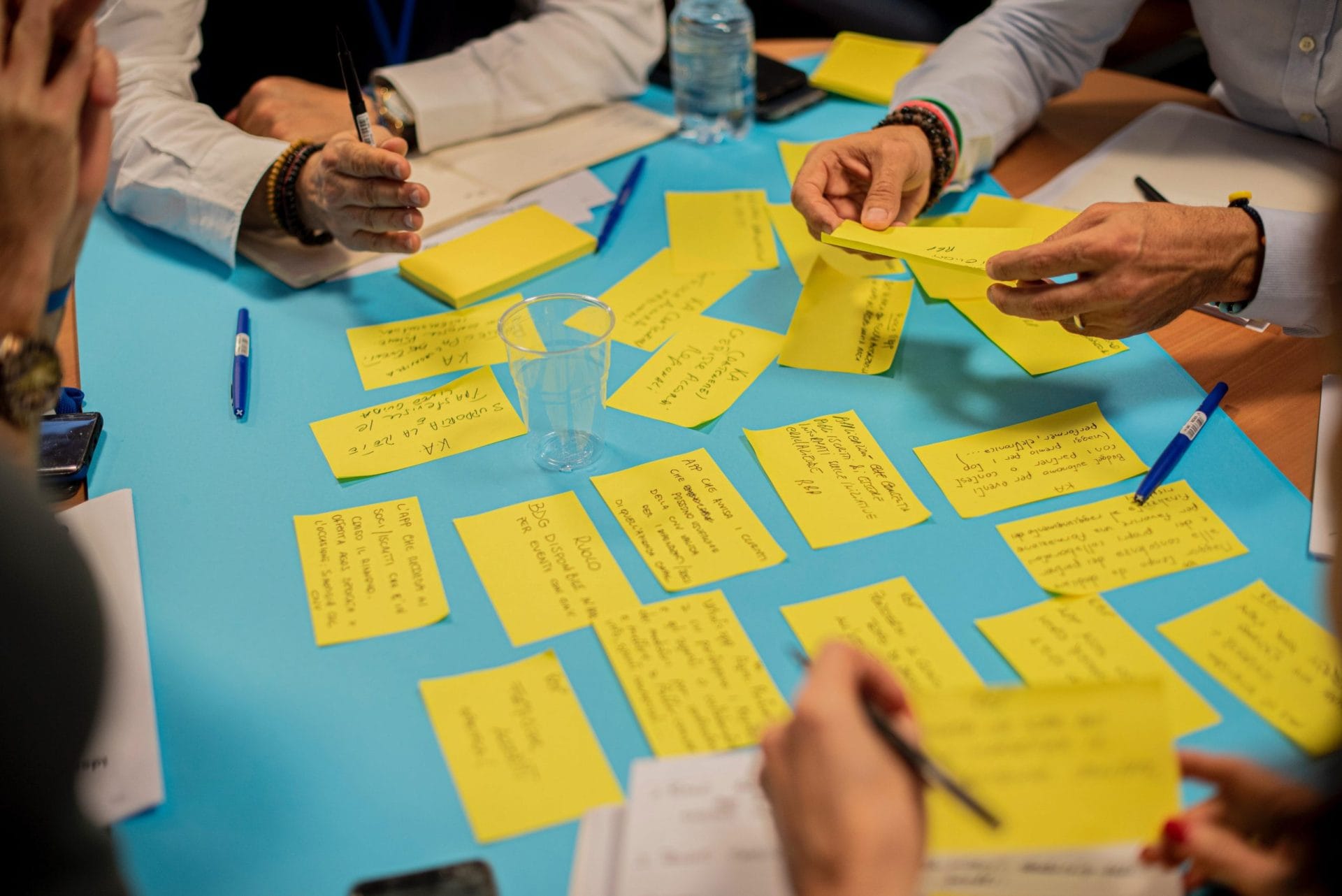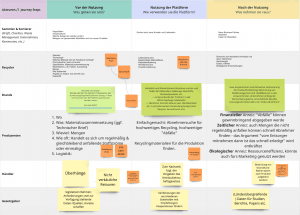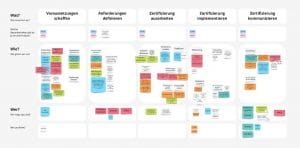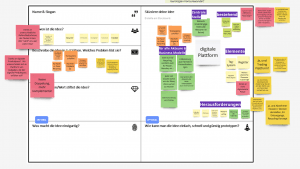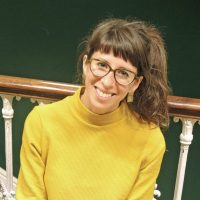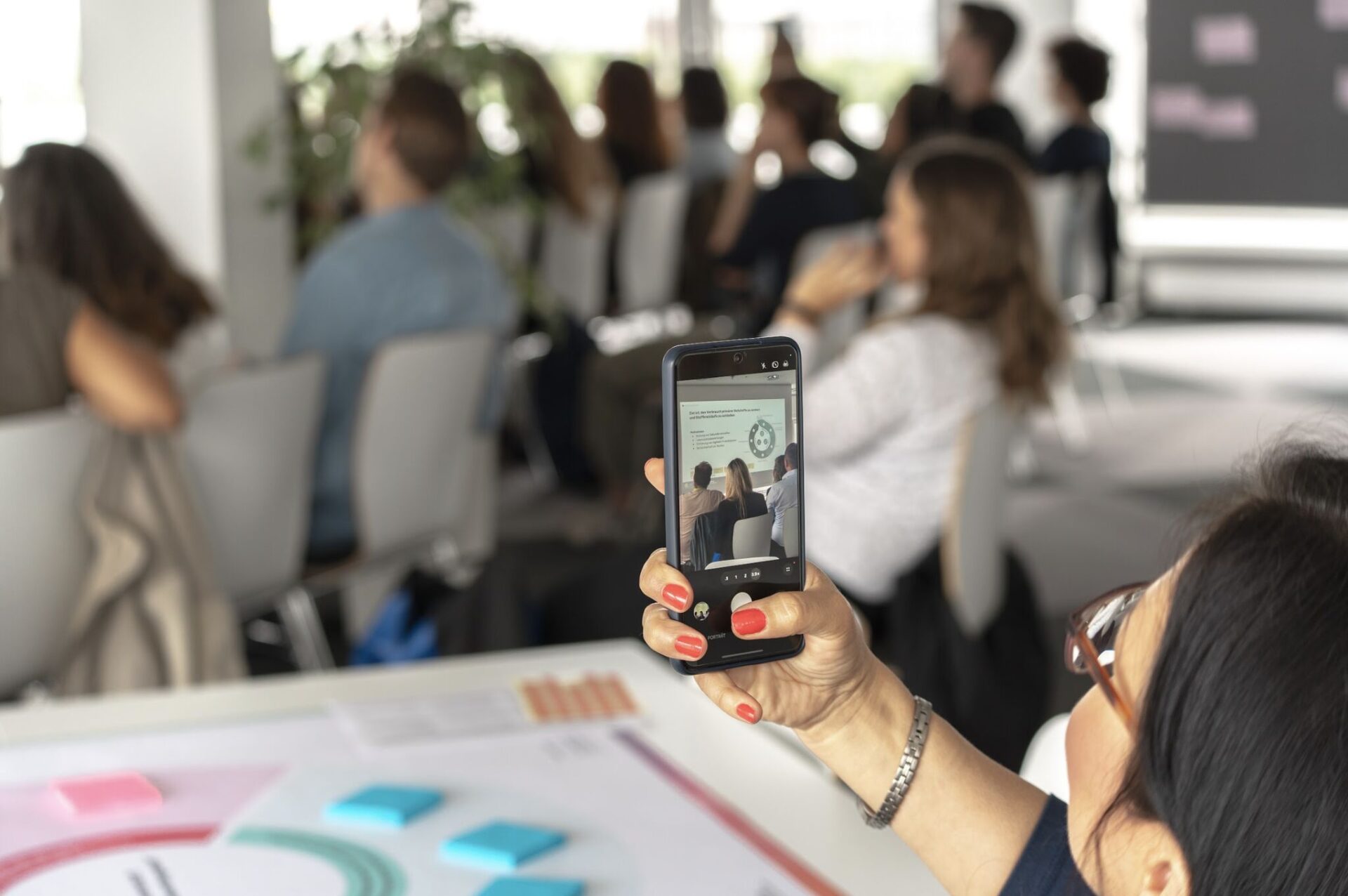In light of the incoming sustainability and circularity major legislations at national and European level, the German fashion industry needs to create new crucial partnerships with the textile reversible supply chain. Initiated by the German “Partnership for Sustainable Textiles” and in collaboration with the circularity agency “Closed Loop Fashion”, in a 4 days multi-stakeholder workshop we fostered a crucial dialogue between fashion brands, producers and actors of the textile recycling industry with the aim of finding possible collaborative solutions for a more circular textile system in Germany.
INITIATOR
Textilbündnis für nachhaltige Textilien (Partnership for sustainable Textiles)
PARTNERS
Circular Berlin, Closed Loop Fashion, Kira Tschierschke
DATE
February 2022
The challenge
From the 1st of January 2025 all EU member states are required to establish systems for a separate collection of textiles. Beside this, regulations to ban the discarding of unsold or returned textile products are about to be introduced in Germany. Establishing take-back systems and reversible supply chains and logistics for post-consumer textiles is becoming crucial to the survival of the sector. A Circular Economy for the textile industry can only be created if all the involved stakeholders are willing to cooperate and create new synergies.
Our approach
The workshop included 15 participants and 3 facilitators and was run online through Zoom. The interactive group work sessions were carried out using Miro.
We planned 4 half-days sessions and organized the work as following:
Day 1: Giving Context
During this session the workshop facilitators gave input about Policy frameworks with focus on textile waste policies and showed Industry Insights regarding the business opportunities generated by the establishment of efficient reversible supply chains. During this first session the participants could get to know each other in 1:1 conversations aimed to understand challenges and wishes of other stakeholder groups.
Day 2: Creating Understanding
The second session was all about exploring the different point of views of the diverse stakeholder groups. At the end of the session the participants clustered the main challenges and decided on the two they wanted to work further on:
1. An harmonized certification system for circular products.
2. The creation of a system in which material flows of spent textiles, overhangs and returns are made visible and accessible for reuse.
Day 3 & 4: Ideation and Elaboration of Ideas
Guided by the facilitators, the two multi stakeholder groups worked intensively during the last two sessions on the ideas, defining them in detail and punctually presenting them to the other group for validation..
The outcomes
The first group has developed a proper roadmap for the creation and establishment of an harmonized certification for circular products, taking into account all different stakeholders.
The second group has worked on the specific idea of creating a digital and completely integrable tool for the transparent transit of information about secondary material streams between different actors (e.g: between fashion brand and recycler). The tool should serve multiple stakeholder groups, all of whom need adequate and clear information about materials in the cycle in order to build new capacities and introduce new business models/projects towards Circular Economy.
Further steps
The workshop was a first opportunity to start a dialogue among the different stakeholders and to foster possible collaborations for future projects. The elaborated ideas have been presented to a bigger audience at one of the Textilbündnis CE sessions. The institution, which was also the initiator of the workshop, will present the results internally and potentially fund one of the ideas

